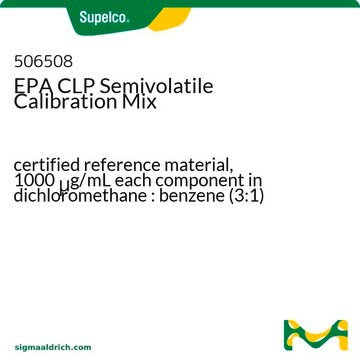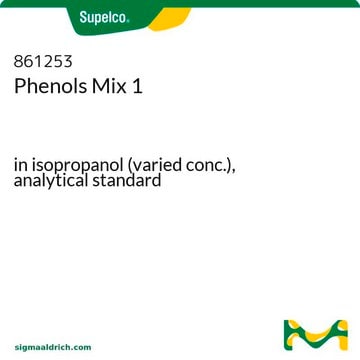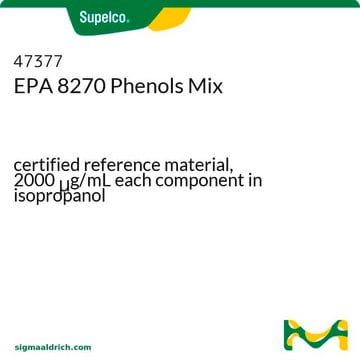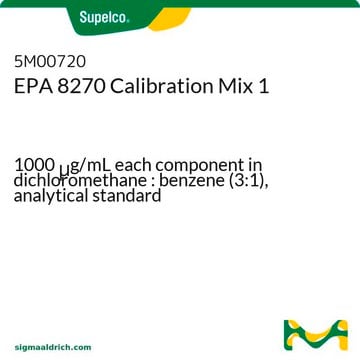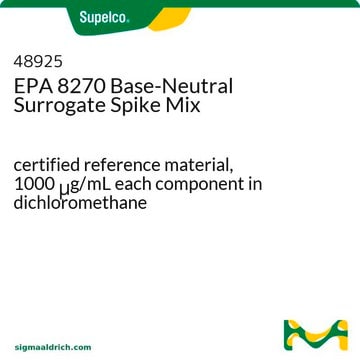46853-U
Mélange n°1 LCS 8270
100 μg/mL each component in acetone: methylene chloride (9:1), analytical standard
About This Item
Produits recommandés
Qualité
analytical standard
Niveau de qualité
Agence
EPA 8270
CofA (certificat d'analyse)
current certificate can be downloaded
Caractéristiques
standard type calibration
Conditionnement
ampule of 25 mL
Concentration
100 μg/mL each component in acetone: methylene chloride (9:1)
Technique(s)
HPLC: suitable
gas chromatography (GC): suitable
Application(s)
environmental
Format
multi-component solution
Température de stockage
-10 to -25°C
Description générale
Application
Analyte
Mention d'avertissement
Danger
Mentions de danger
Conseils de prudence
Classification des risques
Carc. 2 - Eye Irrit. 2 - Flam. Liq. 2 - Skin Irrit. 2 - STOT SE 3
Organes cibles
Central nervous system
Code de la classe de stockage
3 - Flammable liquids
Classe de danger pour l'eau (WGK)
WGK 2
Point d'éclair (°F)
-2.2 °F
Point d'éclair (°C)
-19 °C
Équipement de protection individuelle
Eyeshields, Faceshields, Gloves, type ABEK (EN14387) respirator filter
Faites votre choix parmi les versions les plus récentes :
Déjà en possession de ce produit ?
Retrouvez la documentation relative aux produits que vous avez récemment achetés dans la Bibliothèque de documents.
Les clients ont également consulté
Notre équipe de scientifiques dispose d'une expérience dans tous les secteurs de la recherche, notamment en sciences de la vie, science des matériaux, synthèse chimique, chromatographie, analyse et dans de nombreux autres domaines..
Contacter notre Service technique